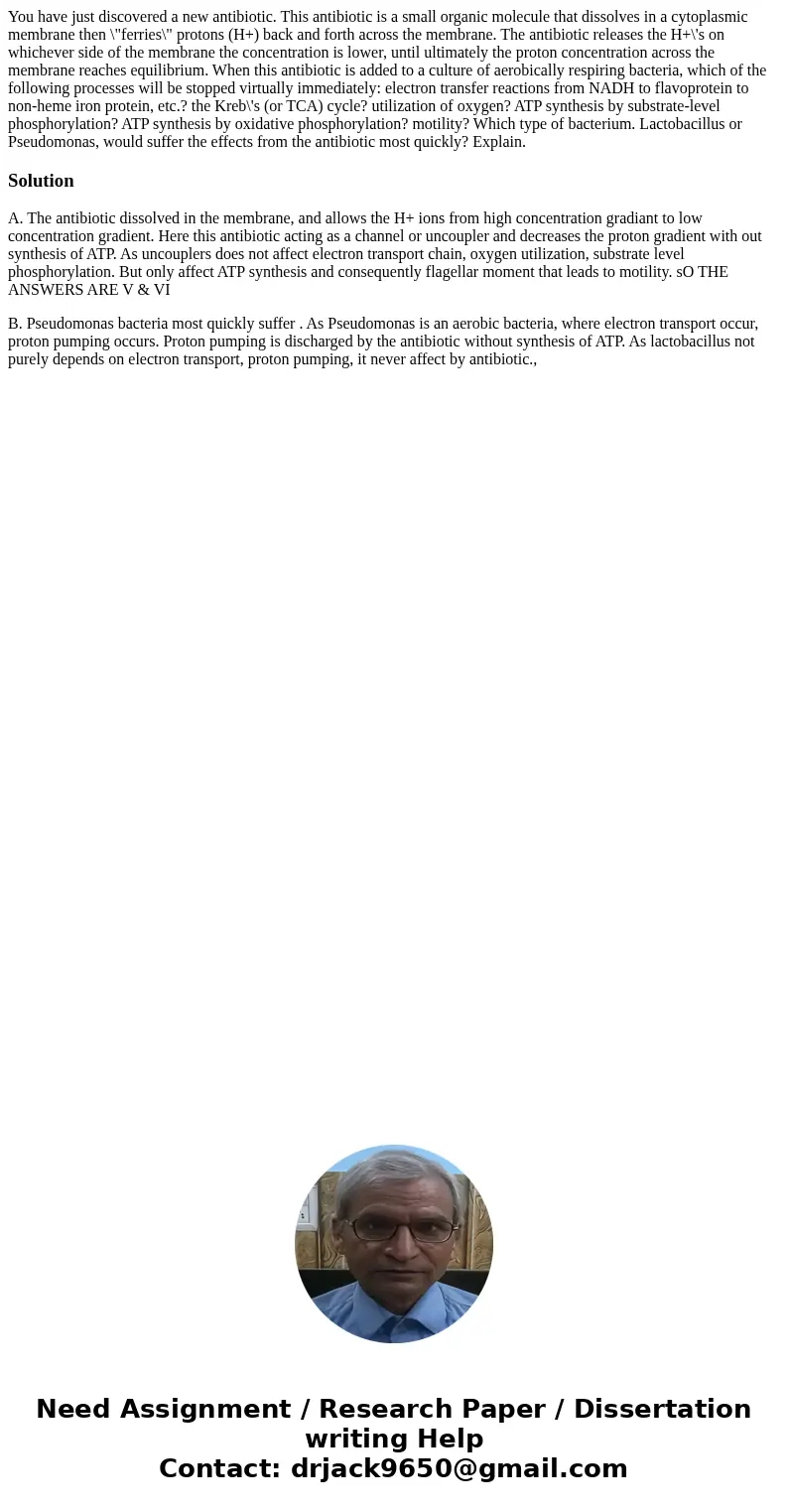You have just discovered a new antibiotic This antibiotic is
Solution
A. The antibiotic dissolved in the membrane, and allows the H+ ions from high concentration gradiant to low concentration gradient. Here this antibiotic acting as a channel or uncoupler and decreases the proton gradient with out synthesis of ATP. As uncouplers does not affect electron transport chain, oxygen utilization, substrate level phosphorylation. But only affect ATP synthesis and consequently flagellar moment that leads to motility. sO THE ANSWERS ARE V & VI
B. Pseudomonas bacteria most quickly suffer . As Pseudomonas is an aerobic bacteria, where electron transport occur, proton pumping occurs. Proton pumping is discharged by the antibiotic without synthesis of ATP. As lactobacillus not purely depends on electron transport, proton pumping, it never affect by antibiotic.,

 Homework Sourse
Homework Sourse